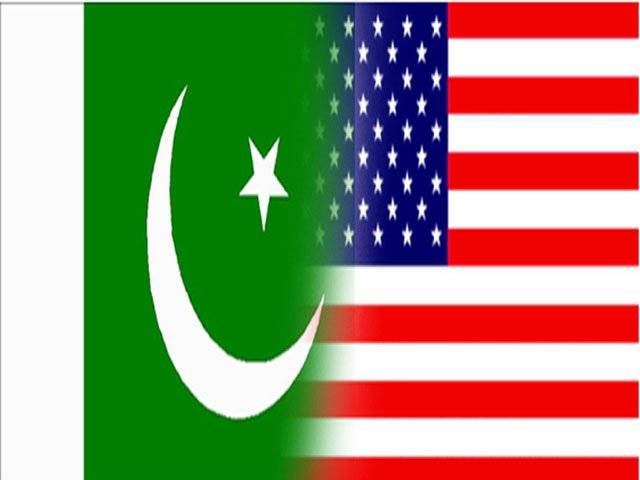American officials fear that a Pakistani move to bring about a political settlement in Afghanistan would give Pakistan a foothold there and undermine U.S. interests, according to a leading American newspaper. "The dismissal of Gen. Stanley A. McChrystal will almost certainly embolden the Pakistanis in their plan as they detect increasing American uncertainty," The New York Times said in a front-page dispatch from Islamabad to which its correspondents in Washington and Kabul contributed. But even though the Pakistani plan is aimed at bringing peace to the region, the Times portrayed it in negative terms, claiming that Pakistan is "exploiting the troubled United States military effort in Afghanistan". In the wake of the change of command of US troops in Afghanistan, the newspaper also said that the Pakistan Army chief, Gen. Ashfaq Parvez Kayani, preferred General McChrystal to his successor, Gen. David Petraeus, whom he considers more of a politician than a military strategist. "Pakistan is presenting itself as the new viable partner for Afghanistan to President Hamid Karzai, who has soured on the Americans," the dispatch said. "Pakistani officials say they can deliver the network of Sirajuddin Haqqani, an ally of Al Qaeda who runs a major part of the insurgency in Afghanistan, into a power-sharing arrangement". In addition, Afghan officials claim, the Pakistanis are pushing various other proxies, with General Kayani personally offering to broker a deal with the Taliban leadership. "Washington has watched with some nervousness as General Kayani and Pakistans spy chief, Lt. Gen. Ahmad Shuja Pasha, shuttle between Islamabad and Kabul, telling Mr. Karzai that they agree with his assessment that the United States cannot win in Afghanistan, and that a postwar Afghanistan should incorporate the Haqqani network, a longtime Pakistani asset.," it said. In a sign of the shift in momentum, the two Pakistani officials were next scheduled to visit Kabul on Monday, according to Afghan TV. "Despite General McChrystals 11 visits to General Kayani in Islamabad in the past year, the Pakistanis have not been altogether forthcoming on details of the conversations in the last two months, making the Pakistani moves even more worrisome for the United States," the paper said, citing an American official involved in the administrations Afghanistan and Pakistan deliberations. They know this creates a bigger breach between us and Karzai, the American official was quoting as saying. "Though encouraged by Washington, the thaw heightens the risk that the United States will find itself cut out of what amounts to a separate peace between the Afghans and Pakistanis, and one that does not necessarily guarantee Washingtons prime objective in the war: denying Al Qaeda a haven," the Times said. "It also provides another indication of how Pakistan, ostensibly an American ally, has worked many opposing sides in the war to safeguard its ultimate interest in having an Afghanistan that is pliable and free of the influence of its main strategic obsession, its more powerful neighbour, India," it said. General Kayani has resisted the American pleas to initiate an offensive against the Haqqani group, saying his troops are too busy fighting the Pakistani Taliban in other parts of the tribal areas, the paper said. "But there have long been suspicions among Afghan, American and other Western officials that the Pakistanis were holding the Haqqanis in reserve for just such a moment, as a lever to shape the outcome of the war in its favour", it said. General Petraeus told Congress last week that Haqqani fighters were responsible for recent major attacks in Kabul and the Bagram Air Base in Afghanistan, adding that he had informed General Kayani. Some officials in the Obama administration have not ruled out incorporating the Haqqani network in an Afghan settlement, though they stress that President Obamas policy calls for Al Qaeda to be separated from the network. American officials are skeptical that that can be accomplished. Richard C. Holbrooke, the Obama administrations special envoy to Pakistan and Afghanistan, said on a visit to Islamabad last weekend that it was hard to imagine the Haqqani network in an Afghan arrangement, but added, Who knows?
Saturday, April 20, 2024
Pak's Afghan settlement plan to hurt US interests: American officials

Watercourse project to help increase crop yields in Punjab
12:57 PM | April 20, 2024
Justice Ishtiaq Ibrahim sworn in as PHC chief justice
12:54 PM | April 20, 2024
817 held for selling Roti at higher rate in 5 days
April 20, 2024
Another westerly wave to enter in Balochistan on April 25
12:39 PM | April 20, 2024
Policitising Tragedy
April 20, 2024
Tehran to Rafah
April 20, 2024
A New Leaf
April 20, 2024
A Tense Neighbourhood
April 19, 2024
Dubai Underwater
April 19, 2024
Dangers of Deepfakes
April 20, 2024
Feudalism
April 20, 2024
Kite tragedy
April 19, 2024
Discipline dilemma
April 19, 2024
Urgent plea
April 19, 2024
ePaper - Nawaiwaqt
Advertisement
Nawaiwaqt Group | Copyright © 2024





